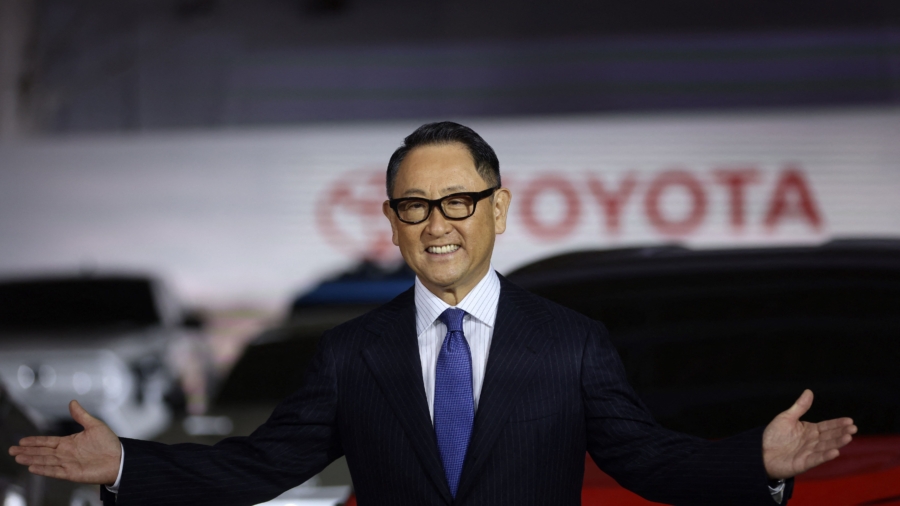Tensions are rising ahead of Toyota’s annual shareholder meeting on June 14 after several of the carmaker’s institutional shareholders said they are considering a vote to remove chairman Akio Toyoda from the company’s board over his electric vehicle (EV) stance.
Toyoda, the 66-year-old grandson of the company’s founder, stepped down as the Japanese automaker’s CEO in January. He has been criticized by pension funds and environmental lobbyists for his cautious approach toward going all-in on EVs—and for maintaining the company’s focus on manufacturing hybrid vehicles.
Many investors believed the new CEO, Koji Sato, would make the decision to go full-EV. No date has yet been announced, however, despite promises to accelerate all-electric vehicle (or Battery Electric Vehicle—BEV) development.
Institutional shareholders who are putting pressure on the company to take the leap include the New York City comptroller’s office, the California Public Employees’ Retirement System, and a group of European asset managers. “Toyota is failing to lean, like its peers, into a timely transition to an electric fleet,” NYC comptroller Brad Lander told The Washington Post. “We want to be persuaded that there is a transition underway and that they’ll take meaningful steps toward an all-EV commitment.”
Anders Schelde, chief investment officer of Danish pension fund AkademikerPension, claimed Toyota is losing out on profits as EV sales increase in the United States and Europe. “From an investor perspective, we seek highest profits and responsible investment, and Toyota’s EV strategy is simply not looking attractive,” he said.
EV Reluctance
Toyota, the world’s largest carmaker, has been one of the few car companies to remain reluctant on planning a complete transition to BEVs for both practical and economic reasons, arguing that not all areas of the world will adopt BEVs at the same pace due to the added cost of the vehicles and the charging infrastructure required.
Last year, Toyota Research Institute CEO Gill Pratt told media that he anticipates “tremendous bottlenecks” in the supply of lithium and nickel within the coming decade as a result of the automotive industry’s worldwide switch toward BEVs.
Chairman Toyoda has also questioned the ecological rationale behind the push for BEV’s when the bulk of global electricity is generated by carbon-emitting fossil fuels, claiming a “silent majority” within the auto industry hold similar concerns—but are afraid to speak out.
In the quest to find alternatives, Toyota has been investing heavily in a multi-path approach to mobility that incorporates e-fuels and hydrogen fuel cell vehicles, which fill up as quickly as conventional gas vehicles.
The chance that Akio Toyoda will be ousted from the board is minuscule, however, given his popularity within the company and with individual investors—Toyoda’s renomination to the board earned him a 96 percent approval rating at last year’s shareholder meeting. The embarrassment of a vote could nonetheless impact the company’s image in Japan’s consensus-based business culture.
Toyota CEO Sato—who previously managed the company’s luxury brand Lexus—announced the development of a dedicated BEV platform recently to introduce ten new EV models by 2026, including a three-row SUV model to be assembled in the United States at Toyota’s Georgetown facility in Kentucky.


